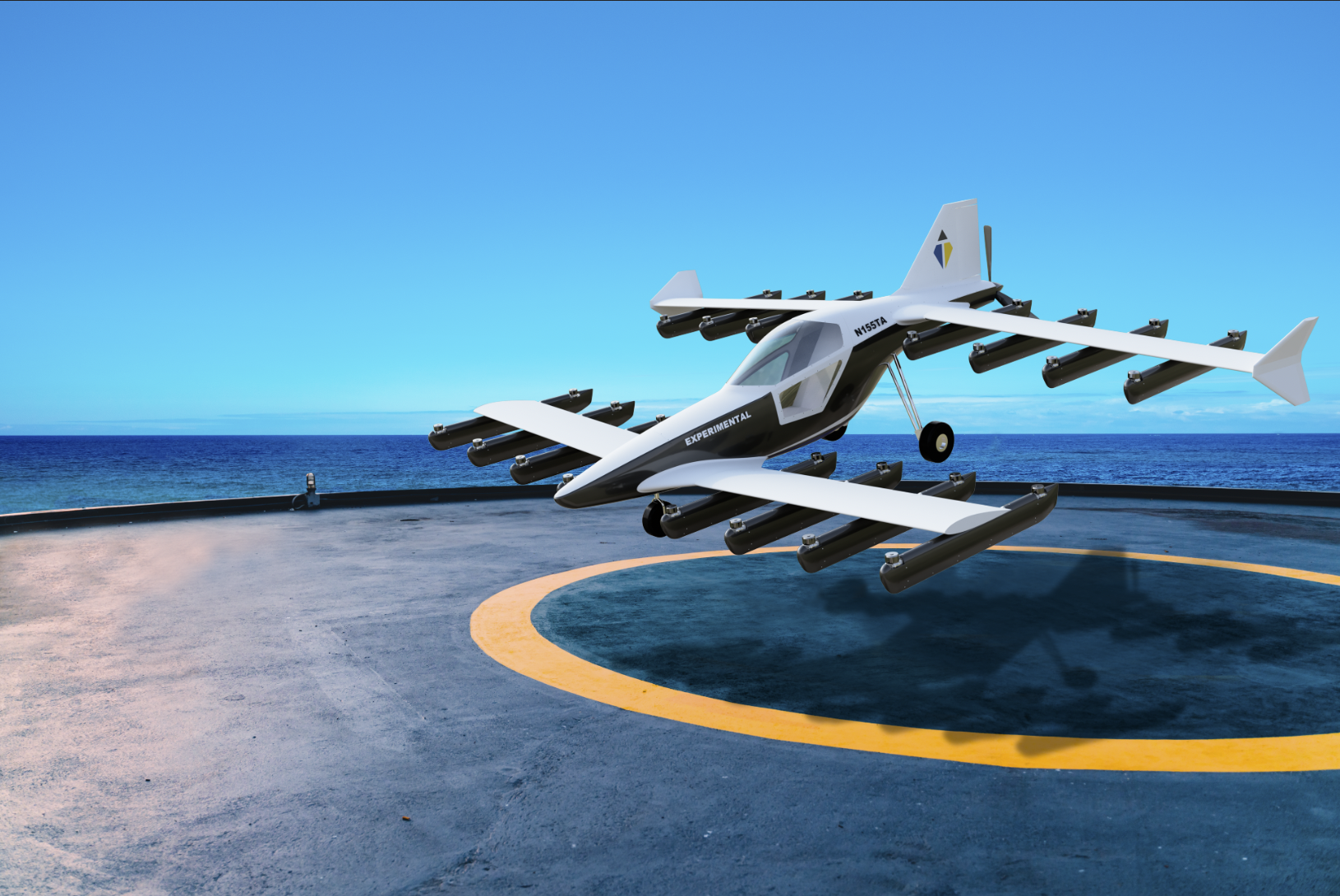Click Here to View This Page on Production Frontend
Click Here to Export Node Content
Click Here to View Printer-Friendly Version (Raw Backend)
Note: front-end display has links to styled print versions.
Content Node ID: 419164
Following its public debut at last month’s EAA AirVenture show Tetra Aviation’s new Mk 5 personal eVTOL is set to do some flight testing in September. The Japanese start-up’s nine-strong team stayed in the U.S. after the event in Oshkosh, Wisconsin, and have moved the prototype exhibited there to Byron Airport in California.
Tetra CEO Tasuku Nakai told FutureFlight that the U.S. is a key market for the kit-built electric aircraft that it intends to certify under FAA Part 23 rules. As an interim step, it will seek to get clearance for the Mk 5 under experimental aircraft rules.
The aircraft features 16 pairs of electric motors installed in nacelles across a pair of wings, with each nacelle having small vertical lift propellers. To support cruise flight, there is also a pusher propeller at the rear of the fuselage.
The Mk 5 will accommodate a single operator weighing no more than 200 pounds for flights of up to 100 miles. During the Oshkosh show, Tetra started taking pre-order reservations that will give the “priority customers” early access to negotiate purchases at a later date.
Nakai explained that it will hold meetings with these prospective customers in order to get their feedback on possible use cases for the vehicle, which has not yet been assigned a product name. The company may consider plans for a larger aircraft with a higher payload. Under kit-built rules, it expects to be able to start closing sales with launch customers in 2022, and that full type certification could take another three years.
The new eVTOL design builds on the earlier Mk 3 quadcopter hoverbike that Tetra also intends to bring to the market. This hybrid-electric single-seater, which won last year’s Boeing-sponsored Go Fly competition, has range of just 30 miles and is described as a racing model.
Nakai said Tetra has prioritized development work in the U.S. in part because the country is, “a very friendly place for flight testing.” Discussions with Japan’s aviation regulator are less far advanced than with the FAA, but the Tokyo-based company is aiming for an experimental license in its own country too.
Under U.S. rules for the kit-built category of aircraft, operators will only need a private pilot’s license. Tetra says the flight control systems and displays, which are not yet fully specified, are being designed to simplify operations. The aircraft will feature a whole-aircraft ballistic parachute.
Many of the parts and systems for the Mk 5 eVTOL are being sourced as commercial off-the-shelf equipment. The aircraft’s current 13.5 kW/hr batteries take up to around two hours to fully recharge, but Tetra is already looking to source new hardware that would charge in less than 60 minutes.
For now, Tetra’s main backers are a group of Japanese angel investors, including some who have also invested in technology groups including Microsoft. Nakai indicated that the company will likely confine its fund-raising efforts to private investors for now.
